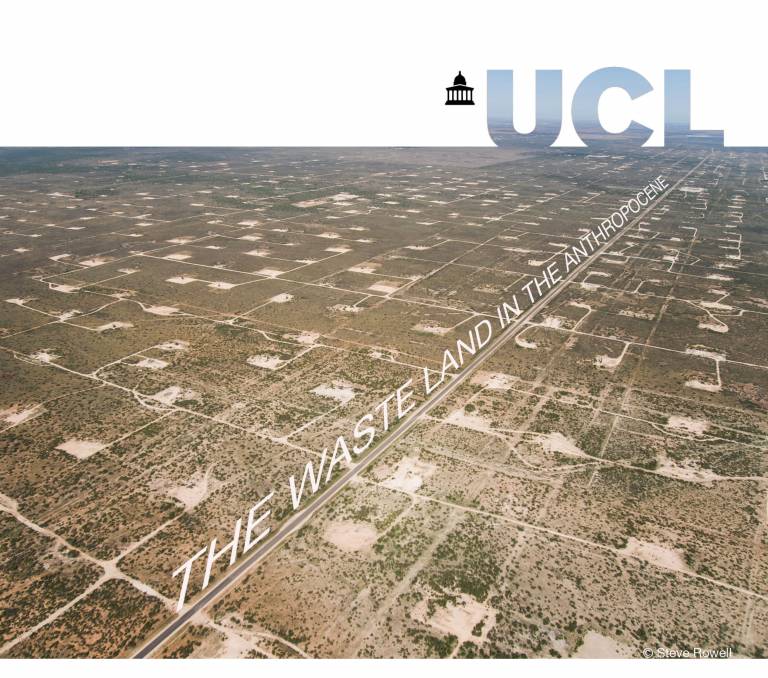Round Table: T S Eliot’s The Waste Land in the Anthropocene
05 December 2022, 6:00 pm–8:00 pm

This event is exploring the centenary of poetic modernism as a foreshadowing of the Anthropocene, organised by Dr Pushpa Arabindoo, co-director of UCL Urban Laboratory and Nicola Baldwin, playwright and former UCL Creative Fellow
This event is free.
Event Information
Open to
- All
Availability
- Yes
Cost
- Free
Organiser
-
Sophie Mepham
Location
-
UCL Student Centre7-28 Gordon SquareLondonWC1H 0AH
First published in December 1922, T S Eliot’s The Waste Land towers above the landscape of modernism. Rather than addressing it purely in retrospect, this roundtable brings it into conversation with the Anthropocene, gleaning renewed perspectives on the way the poem conveys changing relations between humanity and nature. Equally as a century old 'monument' – it is a good moment not only to ask how its ecocritical speculations on the wonder and dread of the non-human world have held up, but also to consider how its posthuman reflections can be carried forward to indigenise / decolonialise the Anthropocene.
Panellists:
Miranda Miller, author and Royal Literary Fund Fellow
Dr Julia Jordan, UCL English
Dr Pavan Manogaran, UCL Sarah Parker Remond Centre
Tara Kearney will present an extract from Wasteland.
Dramatist Nicola Baldwin joined the IAS on a Creative Fellowship to collaborate with Dr Pushpa Arabindoo, co-director of the UCL Urban Laboratory, on The City Dionysia – Narrating Wasteland in Urban Life, an investigation into whether twenty-first century theatre could create new audiences for academic research, and encourage communication within the modern 'city' of the university. Using as a testbed Pushpa’s priority area of ‘Wasteland’ at the UCL Urban Laboratory and the 2019-2020 collaborative annual theme of 'Waste' at the IAS and the Urban Lab. Nicola’s play Wasteland, which reimagines the UCL Student Centre as a liminal space, will be performed in 2023.
Please book your place for this event by emailing sophie.mepham@ucl.ac.uk.
 Close
Close

